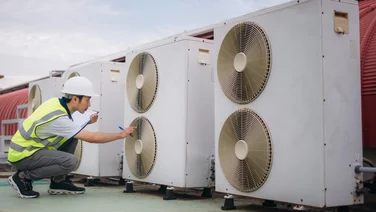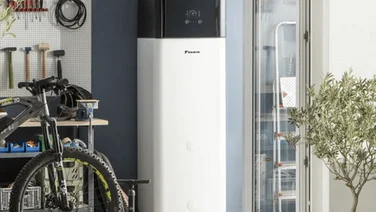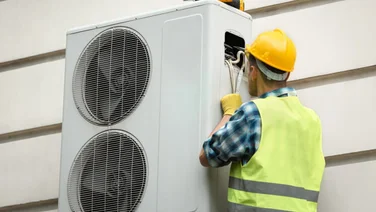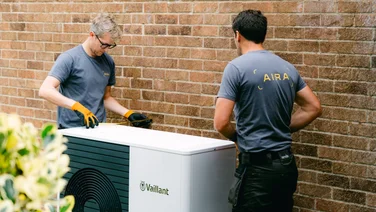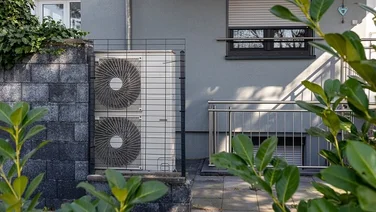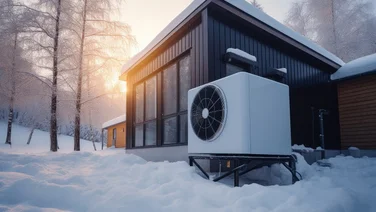We receive a small fee from trusted installers when you request a quote through our site. This helps us keep our content independent, well-researched and up to date – Learn more
- Heat pump grants: Key Facts
- What government grants are available for heat pumps?
- Am I eligible for a heat pump grant?
- How do I verify my heat pump installer is MCS certified?
- What is the Boiler Upgrade Scheme and how does it work?
- How does the Boiler Upgrade Scheme work?
- What are the eligibility requirements for the Boiler Upgrade Scheme?
- How to apply for the Boiler Upgrade Scheme
- Is the Boiler Upgrade Scheme taxable?
- ECO4
- How does the ECO4 scheme work?
- What are the eligibility requirements for the ECO4 scheme?
- How to apply for the ECO4 scheme
- What is the Warm Homes Local Grant and who is eligible?
- How does the Warm Homes Local Grant scheme work?
- What are the eligibility requirements for the Warm Homes Local Grant scheme?
- How to apply for the Warm Homes Local Grant scheme
- Home Energy Scotland Grant and Loan
- How does the Warmer Homes Scotland scheme work?
- What is the Nest Wales scheme and who can apply?
- Who’s eligible for Nest?
- 0% VAT
- How to get heat pumps for less without a grant or a loan
- Expired heat pump grants
- Expired: Home Upgrade Grant
- Expired: Renewable Heat Incentive (RHI)
- Expired: The Green Homes Grant
- How to avoid heat pump grant scams
- How much do heat pumps cost without grants?
- What do I do if I don’t qualify for any heat pump grants?
- Octopus Energy and Lloyds Bank heat pump grant
- Aira’s green energy tariffs
- Next steps
- Summary
- The Boiler Upgrade Scheme cuts the cost of a heat pump by £7,500
- The scheme will end on 31 December 2027
- VAT on heat pumps has been slashed to 0% for the next five years

As with any significant renovation work in your home, the costs involved in changing your heating and hot water system from a gas boiler to a heat pump, are quite high.
Fortunately, there are government grants which cut down on the cost of a heat pump, such as the Boiler Upgrade Scheme (BUS), which offers £7,500 towards installation.
Studies show that when heat pumps are rolled out across households, overall demand for energy usage can drop by about 40% – with gas falling by 90% and electricity rising by 61%.
In this guide, we’ll go through the various government grants on offer, so that you can find out if you are eligible, and how to apply if so. We’ll also look at alternative ways to fund heat pumps if you’re not eligible for any of the grants. But don’t just take our word for it.
But don’t just take our word for it. Chris, a coastal homeowner and Octopus Energy customer, said: “[The heat pump] was more affordable than replacing the old boiler and radiators with another fossil fuel system, thanks to the government grant.”
Heat pump grants: Key Facts
- VAT on heat pumps has been slashed to 0% until at least 2030
- The Boiler Upgrade Scheme (BUS) cuts the cost of a heat pump by £7,500 and will end in December 2027
- It led to a 63% increase in UK heat pump sales year on year in 2024
- Using the BUS reduces the average heat pump cost from £10,000 to £2,500
- Warmer Homes Scotland provides heat pump grants in Scotland
- To be eligible, the household needs to have someone 75 or over living in it and must have no central heating, or if someone in the household is terminally ill
- Nest provides heat pump grants in Wales
- The Warm Homes: Local Grant replaced the Home Upgrade Grant and helps local authorities deliver clean energy upgrades
- It is aimed at households with an Energy Performance Certificate ( EPC ) between D and G
- Local authorities across England can authorise funding of up to £15,000 per home
- Expired grants include ECO4, the Home Upgrade Grant, the Renewable Heat Incentive, and the Green Homes Grant
What government grants are available for heat pumps?
Depending on where you live in the UK, there are currently a number of government grants available to help you pay the costs of a new heat pump installation.
UK heat pump grants – at a glance
- The Boiler Upgrade Scheme – provides heat pump grants in England and Wales
- ECO4 – provides heat pump grants in England, Scotland and Wales
- Warmer Homes Scotland – provides heat pump grants in Scotland
- Nest – provides heat pump grants in Wales
- Home Upgrade Grant – this grant has now been closed
- Warm Homes: Local Grant – this replaced the Home Upgrade Grant. It helps local authorities deliver clean energy upgrades.
To receive free, tailored quotes for double glazing, just fill in this quick form and our trusted installers will be in touch.
While most of these schemes provide some financial support towards the cost of a new heat pump, the grants that are intended to help low-income households could cover the full costs of a heat pump installation and other low-carbon technology and energy efficiency improvements.
Chris, a coastal homeowner and Octopus Energy customer, said: “It was more affordable than replacing the old boiler and radiators with another fossil fuel system, thanks to the government grant.”

Am I eligible for a heat pump grant?
The eligibility criteria for heat pump grants varies significantly depending on which one you apply for.
For example, you might need to live in a specific type of property, as well as meet certain income or financial criteria.
You might also need to live in a building with a low energy efficiency rating.
It’s important that, before you apply, you understand and meet all of the eligibility requirements. Doing this can help save time and frustration.
Typically, the organisation overseeing the grant will include the requirements and publish them on the relevant scheme’s website.
Below, you can find out each scheme in more detail, as well as how it works, eligibility requirements and the pros and cons of each.
FAQ: Does the Boiler Upgrade Scheme apply to second-hand heat pumps?
The Boiler Upgrade Scheme does not apply to second-hand heat pumps. While there is interest in DIY or second-hand hardware to save costs, it removes eligibility for the scheme. According to Ofgem regulations, the heat pump must be new, installed by a Microgeneration Certification Scheme (MCS) certified installer, meet specific efficiency standards, and not have been used prior to commissioning.
How do I verify my heat pump installer is MCS certified?
To verify your heat pump installer is MCS certified, you can use the official MCS ‘Find an Installer’ tool on its website by searching the postcode or installer name.
You can also ask your installer for their unique MCS number and cross-check it, and ensure they’re registered with consumer codes, like RECC for deposit protection and warranties.
A legitimate installer will readily provide their certificate and number, as it’s crucial when applying for government grants and quality assurance.
What is the Boiler Upgrade Scheme and how does it work?
The most straightforward and widely-available government grant for a heat pump installation is the Boiler Upgrade Scheme (BUS). The BUS is a government scheme that is intended to help the owners of homes and businesses replace fossil fuel heating and hot water systems with a low-carbon alternative, such as a heat pump.
It has massively helped the roll out of heat pumps across the UK, leading to a 63% increase in sales year on year in 2024.
The scheme has proven to be so popular that in February 2025 the government announced it was increasing its fund by £25m, bringing the total amount of money available to £205m.
Chancellor of the Exchequer Rachel Reeves has strongly hinted that there may be further increases to government grants for low-carbon technology, which may come into effect in the spring.
FAQ: What happens if the BUS funding runs out or has an end date?
The Boiler Upgrade Scheme was launched in May 2022 originally scheduled to run for three years, ending in March 2025. However, it has since been extended, and more funds added, with the scheme now scheduled to run until 31 December 2027. Government reports now suggest the scheme will be prolonged until at least 2030 in line with its net zero targets. As of yet, there is no heat pump grant end date. If one presents itself, it is likely that another scheme will take its place.
How does the Boiler Upgrade Scheme work?
With this grant, homeowners in England and Wales are able to get £7,500 off the cost of a new air source or ground source heat pump, or £5,000 towards a biomass boiler.
You will need to work with an MCS-certified heat pump installer, who will apply for the grant on your behalf.
Using the BUS will reduce the average heat pump cost from £10,000 to £2,500.
What’s more, according to our calculations, a heat pump for the average household will save you £4,340 compared to a gas boiler, over its lifespan.
What are the eligibility requirements for the Boiler Upgrade Scheme?
You must meet the following eligibility requirements:
- You must own the property you’re applying for, including if it’s a business, a second home or a property you rent out to tenants
- You must be replacing fossil fuel heating systems, such as oil, gas, electric of LPG
- You must have a valid EPC certificate
You can get the BUS grant for a biomass boiler if you meet all these requirements:
- You property is off the gas grid
- Your property is in a rural location
- Your boiler has an emissions certificate showing that polluting emissions are kept to a minimum
Earlier this year, Ofgem updated its insulation guidance for BUS. The scheme’s new guidance means that homeowners will no longer be required to install cavity wall or loft insulation in order to qualify for the scheme.
The change in guidance is aimed at removing a significant barrier to heat pump adoption, and accelerate the UK’s transition away from natural gas boilers.
Although the BUS is open to both domestic and non-domestic properties in England and Wales, there are some properties that won’t qualify.
The government states that new-build properties are not eligible for the scheme, with the exception of self-builds that have either been “built mainly using the labour or resources of the first owner” or have never been owned by a business or organisation.
The BUS is also not available for social housing or any properties that have already received a heat pump or biomass boiler installation, funded by the government or an Energy Company Obligation (ECO) scheme.
FAQ: Can I get a grant for a Hybrid system in 2026?
The short answer is no. People often want a hybrid system of a heat pump and boiler for multiple reasons, ranging from economic purposes to having a back up if either break. However, the £7,500 BUS grant requires full fossil fuel replacement, and is not a hybrid heat pump government grant.
How to apply for the Boiler Upgrade Scheme
IfIf you’re interested in applying for the BUS, the good news is that the process is pretty simple – you mostly let your chosen installer do the hard work.
The homeowner’s part of the application can be broken down into three simple steps:
- Contact a suitable MCS-certified installer, who will provide you with a quote for a heat pump installation. You can find a list of qualified installers on the MCS website.
- Once you’ve chosen an installer, they’ll ask you a few questions to confirm whether you’re eligible for the scheme.
- Once you’ve carried out these two steps, the installer will apply for the BUS on your behalf through the Ofgem website.
To give you peace of mind, Ofgem will get in touch with you to confirm the installer is acting on your behalf. They might also contact you – either by phone or by visiting your property – to check the installation.
Once the application has been approved, the value of the grant will be taken off the amount you pay for the installation.
Is the Boiler Upgrade Scheme taxable?
No, the BUS grant itself it generally not taxable for individuals using it for their own homes, as it’s treated as a cost reduction.
However, if you’re a landlord or business and the grant makes your heating costs negative (profit), that excess might become subject to income tax as miscellaneous income, as clarified by Gov UK.
If you’re concerned, contact HMRC or ask your installer for advice.
ECO4
ECO4 is the fourth stage of the government’s ECO scheme, which aims to support low-income households who are unable to upgrade their homes and heating systems.
One of the key ways the scheme supports people is by replacing old boilers with greener alternatives, such as heat pumps and biomass boilers. The scheme can also provide solar photovoltaics (PV) in all electrically heated homes, but only if a biomass machine or District Heat Network are unsuitable.
How does the ECO4 scheme work?
To get support from ECO4, homeowners need to get in touch with one of the energy suppliers that are offering the scheme. You’ll then be taken through a telephone assessment, which will cover a few key topics, including income, whether you receive certain benefits and your property’s energy efficiency rating.
The installer will then arrange a date to visit your home and confirm whether it’s suitable for the grant.
Think you’d benefit from ECO4? Check Ofgem’s list of energy suppliers to get started.
Unlike the BUS, the ECO4 grant amount varies and is determined by the specific heat pump type and any other required energy efficiency measures, such as insulation, needed for your home.
What are the eligibility requirements for the ECO4 scheme?
The ECO4 scheme aims to support low-income and vulnerable households, and the eligibility requirements, according to Ofgem are:
- Your home has a low EPC rating (usually this means a ‘D’ rating or below)
- Your home must also have an existing electric heating system
- You are living at private domestic premises. If you do not own your own home, you must have the permission of your landlord, including if your property is owned by a social housing or management company
You could also be eligible if you receive at least one of the following benefits, meet the income requirements and your home is classed as being in need of any energy efficiency improvements:
- Child benefit
- Income-based Jobseekers Allowance (JSA)
- Income-related Employment and Support Allowance (ESA)
- Income support (IS)
- Pension Credit Guarantee Credit (PCGC)
- Working Tax Credit and Child Tax Credit
- Universal Credit
- Housing Benefit
- Pension Credit Savings Credit (PCSC)
Remember, it is up to energy suppliers to decide what energy efficiency measures they want to fund, and how much funding they provide. You might be asked to contribute to the cost of your heat pump installation.
How to apply for the ECO4 scheme
There are a few options when it comes to applying for the ECO4 scheme, and they’re all pretty straightforward.
You can apply through the Gov UK website, or you can reach out to your energy supplier if they are considered to be an obligated supplier.
These include:
- British Gas: application portal
- E (Gas and Electricity): Email ECO@E.org
- E.ON Energy: application portal
- Ecotricity: Email compliance@ecotricity.co.uk
- EDF Energy: application portal
- Octopus Energy: application portal
- Outfox the Market: email hello@outfoxthemarket.co.uk or call 0800 103 2702
- OVO Energy: application portal
- Scottish Power: application portal
- Shell Energy: email eco@shellenergy.co.uk
- SO Energy (including ESB Energy): application portal or email eco@so.energy
- The Utility Warehouse: call 0333 777 0777
- Utilita Energy: application portal
Once you’ve applied using the online applications above, you’ll receive an email containing a unique reference number and a document. You will be asked for your permission to contact the Department of Work and Pensions to confirm your benefits.
You will then be contacted to arrange a free survey. This survey will be a 10-15 minute inspection of your home’s energy efficiency measures and is designed to be as minimally intrusive as possible.
Once completed, your application should be approved.
What is the Warm Homes Local Grant and who is eligible?
The Warm Homes Local Grant is a UK government initiative to fund energy efficiency upgrades and low-carbon heating in low-income, privately owned and rented homes in England.
The funding is provided through local authorities and aims to reduce fuel poverty while helping UK households transition to net zero. The grant is expected to start in April 2025 and will allocate £500million across 270 local authorities over the next three years.
The grant is aimed at properties with an Energy Performance Certificate ( EPC ) between D and G. If an applicant household is deemed eligible, the grant can be used to install measures such as insulation, solar panels and heat pumps (if appropriate).
Upgrades should be tailored to individual homes so that the most appropriate measures are installed.
How does the Warm Homes Local Grant scheme work?
The scheme is managed through local authorities across England who can authorise the release of funding of up to £15,000 per home for energy performance improvements and an additional £15,000 for low-carbon heating measures, totaling up to £30,000 per household.
The grant funds 100% for homeowners and tenants, but private and social landlords (such as housing associations) must cover 50% of the cost.
English local authorities are responsible for identifying eligible properties and managing the installation of upgrades. Local authorities receive funding allocations to participate in the scheme, and the total funding available is subject to the spending.
Funding is available for insulation, draught-proofing and double or triple-glazing to improve a home’s energy efficiency. The grant also supports installing low-carbon heating systems such as air and ground source heat pumps.
What are the eligibility requirements for the Warm Homes Local Grant scheme?
The Warm Homes Local Grant scheme is designed to support households that are experiencing or are at risk of fuel poverty, with eligibility determined by one of three possible pathways:
Pathway 1: Eligible postcodes
Your home must be located within an eligible postcode area within Income Deciles 1 or 2 of the Indices of Multiple Deprivation (IMD:ID). The IMD ranks neighbourhoods based on things such as income, employment, education and health.
Households in these postcodes automatically qualify without income checks, though other criteria, such as EPC rating and property tenure, will still apply.
Pathway 2: Income Proxies
Your household could also qualify if you receive any of the following means-tested benefits:
- Housing Benefit
- Income-based Jobseeker’s Allowance (JSA)
- Income-related Employment and Support Allowance (ESA)
- Income Support
- Pension Credit (savings and guarantee)
- Universal Credit
Alternatively, you could be eligible if your household meets at least two low-income proxy criteria from ECO4 Flex Route 2. Examples include eligibility for council tax reduction, vulnerability to cold-related health conditions, eligibility for free school meals or referrals from Citizens Advice or energy suppliers.
Pathway 3: Household income threshold
If you do not qualify via the first two pathways, your household could still be eligible if your gross annual household income is below £36,000 or your household’s ‘After Housing Costs’ (AHC) income is below a set threshold.
AHC thresholds vary depending on the number of adults and dependents in your home.
On top of this, the property you live in also has to meet some strict eligibility requirements:
- Your home must have an EPC rating between bands D and G (SAP score of 68 or below).
- Park homes without an EPC rating must be assessed to demonstrate an equivalent energy performance rating.
- The scheme is open to owner-occupied homes and privately rented properties, with certain conditions and contributions required from landlords owning multiple properties.
Local authorities must complete robust checks to verify eligibility according to the above criteria. Depending on local authority discretion and property assessment, funding decisions and specific upgrade measures may also vary.
How to apply for the Warm Homes Local Grant scheme
To apply for the Warm Homes: Local Grant scheme in Wales, you can register your interest with the Warmer Homes website or contact them directly. The scheme will be available from April 2025 and offers funding for energy efficiency upgrades.
To do this, you’ll need to register your interest via the scheme using either the online registration form or by calling Warmer Homes’ freephone number 0800 038 5737. You can also contact your local authority directly to make inquiries.
Home Energy Scotland Grant and Loan
The Home Energy Scotland Grant and Loan is for homeowners who reside in Scotland, enabling them to receive up to £15,000 as a grant. For heat pumps, this is a maximum of £7,500.
The amount you receive depends on the improvements you want to make and, for some improvements, the maximum grant is less. The good news is that you do not need to pay it back. You can also get an interest-free loan to cover some of the costs.
If you live in a rural area, you can apply for extra grant funding. You could get:
- Up to £1,500 extra for energy efficient improvements
- Up to £1,500 extra for clean heating systems, such as heat pumps
You are not eligible for the scheme if you’re a:
- Private landlord
- Applying for a business
- Property developer
If you qualify and want to apply, contact Home Energy Scotland using the following methods:
- Phone 0808 808 2282 – Monday to Friday, 8am to 8pm, and Saturday 9am to 5pm
- Complete a contact form – An adviser from Home Energy Scotland will then get in touch
How does the Warmer Homes Scotland scheme work?
The Scottish government’s Warmer Homes Scotland programme offers financial support to low-income households struggling to keep on top of energy bills. And, for this scheme, the Scottish government will usually meet all the costs.
Under the scheme, you can apply for an interest-free loan to cover them.
With the Warmer Homes Scotland scheme, funding is limited to:
- Central heating, including air source heat pumps
- Renewables like solar panels and turbines
- Wall and loft insulation
- Draught-proofing
You won’t be able to receive funding for work that has already been completed or that has been carried out by non-approved installers.
Homeowners and private tenants can apply if they meet the eligibility criteria for both their households and homes.
You need to have lived in your home for at least six months, unless you’re terminally ill. You also can’t apply if you’ve been supported by Warmer Homes Scotland since October 2023.
The requirements for households are:
- Your household needs to have someone 75 or over living in it and must have no central heating
- OR if someone in the household is terminally ill, they’ll need to have a DS1500 or BASRiS certificate completed by a medical professional
- Receiving certain benefits
The requirements for your home are:
- It’s in council band A to F
- It’s your main home
- It has a poor energy rating – Warmer Homes Scotland can check this for you
- It has a floor area of 230m2 or less
- It’s fit to live in
If you qualify and want to apply, contact Home Energy Scotland using the following methods:
- Phone 0808 808 2282 – Monday to Friday, 8am to 8pm, and Saturday 9am to 5pm
- Complete a contact form – An adviser from Home Energy Scotland will then get in touch
What is the Nest Wales scheme and who can apply?
Created by the Welsh Government, Nest aims to reduce the impact of fuel poverty in Wales by making low-income homes more energy efficient.
If a household is struggling to pay energy bills, they can call Nest’s helpline (run by the Energy Saving Trust), which analyses whether they’re eligible for support.
If the household meets the criteria, they will be referred to British Gas, which will then conduct a ‘whole house assessment’ – a property survey that analyses what home improvements should be made.
The benefits available under the Nest scheme include:
- A new central heating system
- A new energy-efficient boiler
- Cavity wall insulation
- External wall insulation
- Internal wall insulation
- Loft insulation
- Room thermostats and heating controls
- Water tank and pipe insulation
- Air source heat pump
- Ground source heat pump
- Draught-proofing
Who’s eligible for Nest?
If you’d like to get support from Nest, you must:
- Own or privately rent your home (not from a local authority or housing association)
- Have an energy-inefficient home that is expensive to heat
- Receive a means-tested benefit, or have a chronic respiratory, circulatory or mental health condition
The means-tested benefits that qualify are:
- Child Tax Credit (with an income below £16,105 a year)
- Council Tax Reduction
- Housing Benefit
- Income-based Jobseeker’s Allowance
- Income-related Employment and Support Allowance
- Income Support
- Pension Credit
- Universal Credit
- Working Tax Credit (with an income below £16,105 a year)
0% VAT
A zero rate of VAT applies to the installation of certain specific energy-saving materials from 1 May 2023 to 31 March 2027.
This applies to the groundworks necessary for the installation of ground and water source heat pumps.
Research the right pump for you, though, as every home is different. From here, talk to different installers about costs. If you don’t know where to start, simply fill in this form for a free quote across multiple suppliers.
How to get heat pumps for less without a grant or a loan
If you can’t afford to install a heat pump and don’t qualify for a grant – and you would rather not take out a loan or spread the cost over several months or years – try shopping around to find the cheapest option.
We can help by putting you in touch with our trusted suppliers. All you need to do is put in some details about your home using this form and we’ll do the rest.
Expired heat pump grants
Over the past few years, the government and energy suppliers have introduced several different grants, some of which haven’t worked or have been restructured into other schemes.
These are:
- The Home Upgrade Grant
- The Renewable Heat Incentive
- The Green Homes Grant
Expired: Home Upgrade Grant
Until recently, various local councils were awarded funding under the second phase of the Home Upgrade Grant. This grant previously helped provide energy-efficient upgrades and clean heating systems to low-income households.
The scheme ran until March 2025, during which time it provided up to £630m to different authorities.
This has since been replaced with the Warm Homes Local Grant.
Expired: Renewable Heat Incentive (RHI)
In previous years, homeowners could install heat pumps and get paid for the energy they produced by joining the government’s Renewable Heat Incentive scheme. The scheme also covered biomass boilers and solar water heating systems.
However, the Incentive ended in March 2022, and has been replaced with the Boiler Upgrade Scheme.
Expired: The Green Homes Grant
The Green Homes Grant expired in March 2021 after only six months in operation. The Grant was a £2bn government initiative that aimed to cover two-thirds of the cost of home improvements aimed at reducing energy bills and carbon emissions, up to £5,000.
The grant you would have received was based on several eligibility factors, but if you received income-based or eligibility or disability benefits, the government would have paid 100% of your green home improvements, up to £10,000, including ground and water source heat pumps.
The scheme was due to run until March 2022 before it was cancelled, but the government only issued 39,000 vouchers, just 6.5% of the original 600,000 target.
What’s more, more than 80% of homeowners reported poor experiences with the rollout process, and the application process was complicated, with homeowners having to do a lot of work to receive funding.
How to avoid heat pump grant scams
There appear to be several fraudulent websites that ostensibly claim to help you get funding you may be eligible for.
However, these sites are fraudulent and should be avoided.
The main heat pump grant, the Boiler Upgrade Scheme (BUS), is administered by Ofgem, and is applied for on the homeowner or business owner’s behalf by an MCS-registered heat pump installer.
The grant itself is paid to the installer, not to the consumer, and the grant is discounted from the total cost of your installation. Given how it works, only a registered heat pump installer can apply for it, which limits the opportunities for fraudsters.
Follow these simple steps to avoid getting scammed by bad actors promising cheaper energy bills, or access to government grants:
- Be wary of unsolicited offers: exercise caution when dealing with cold calls or emails offering grants and incentives. Government agencies typically don’t approach homeowners this way.
- Seek official websites: check official government or grant websites to confirm that any offers that claim to be related to a scheme are genuine.
- Verify identities: if you suspect you’re dealing with a scammer, ask them to confirm their identity and look up their company accreditation on the MCS site. Representatives of legitimate businesses should be happy to provide you with official documentation such as relevant credentials, qualifications, and other identification.
- Contact authorities: contact the relevant government departments or consumer protection agencies for advice concerning the legitimacy of any company or offer you’re uncertain about.
How much do heat pumps cost without grants?
Without a grant, heat pumps can cost anywhere from £7,000 to over £30,000 to buy and install, depending on the size of your home and the type you’re getting.
An air source heat pump costs around £10,000, whereas a water source heat pump can vary between £6,000 and £11,000.
This is a lot, but when you consider a heat pump’s lifespan of around 30 years on average, which is twice as long as the average gas boiler, it makes more sense.
Running costs will vary depending on a number of factors, including the size of your home, how well insulated it is and what room temperatures you are aiming to achieve.
You’ll also help the climate and avoid costly gas price rises.
What do I do if I don’t qualify for any heat pump grants?
The eligibility requirements on grants can be quite strict, so it’s worth seeing if you can receive funding on finance to help spread the cost.
Below are two examples of potential options for you. Alternatively, consider other ways to help reduce your bills using our guide ‘Twelve ways to cut your carbon footprint’.
Octopus Energy and Lloyds Bank heat pump grant
Lloyds Bank and Octopus Energy partnered in 2022 to help further reduce the cost of installing a heat pump. The scheme is open to existing Lloyds Bank customers, with Octopus currently installing heat pumps in England & Wales.
You could receive the following benefits:
- £100 bill credit on your Octopus Energy account for all Lloyds Bank customers
- £2,000 cashback if you have a Lloyds Bank mortgage, qualify for its Eco Home Reward and have a Club Lloyds account at point of claim.
- Up to £7,500 towards your heat pump installation if you qualify for a government grant
You can request a quote from Octopus Energy’s website.
Aira’s green energy tariffs
Clean energy giant Aira launched two new green energy tariffs for its customers in the UK and Germany, as part of its strategy to expand its services and offer better access to clean energy tech across Europe.
The 100% green energy tariffs are powered by Octopus Energy and aim to help its users reduce energy costs, lead more sustainable lifestyles and drive decarbonisation.
The main tariff for Aira heat pump customers is Aira Zero. It enables them to maximise energy cost savings and reduce CO2 emissions.
It can help save UK households up to £500 on their annual energy bills.
Next steps
For a lot of people, the Boiler Upgrade Scheme is the main initiative that will help them afford a heat pump.
But if you simply can’t wait, why not get a head start on your research? It’s a good idea to figure out what heat pumps actually are, how to find the best models and how to get the most affordable options.
If this article has piqued your interest, why not try out custom-built tool to get the ball rolling?
All you have to do is provide a few quick details about your property, and we’ll put you in touch with our expert heat pump suppliers, who will send you free quotes to compare.
Summary
- Switching from fossil fuel boilers to heat pumps can substantially lower household energy use and reduce carbon footprint.
- Although heat pump installations involve upfront costs, several government grants and incentives exist to help ease the financial burden.
- Many UK grants can significantly offset installation costs, making heat pumps a more affordable long-term investment.
- Reduced VAT and ongoing government schemes support homeowners transitioning to low-carbon heating systems.
- Eligibility criteria vary widely between different schemes, so reviewing your options is essential.
- To start your heat pump journey, explore available funding opportunities and connect with trusted local installers who can guide you through the application process.
- Beware of door-to-door ‘free heat pump’ grant scams. It is unlikely that you would find a free heat pump in the UK, so be wary of cold-callers claiming to represent local council schemes that often aren’t legitimate.


